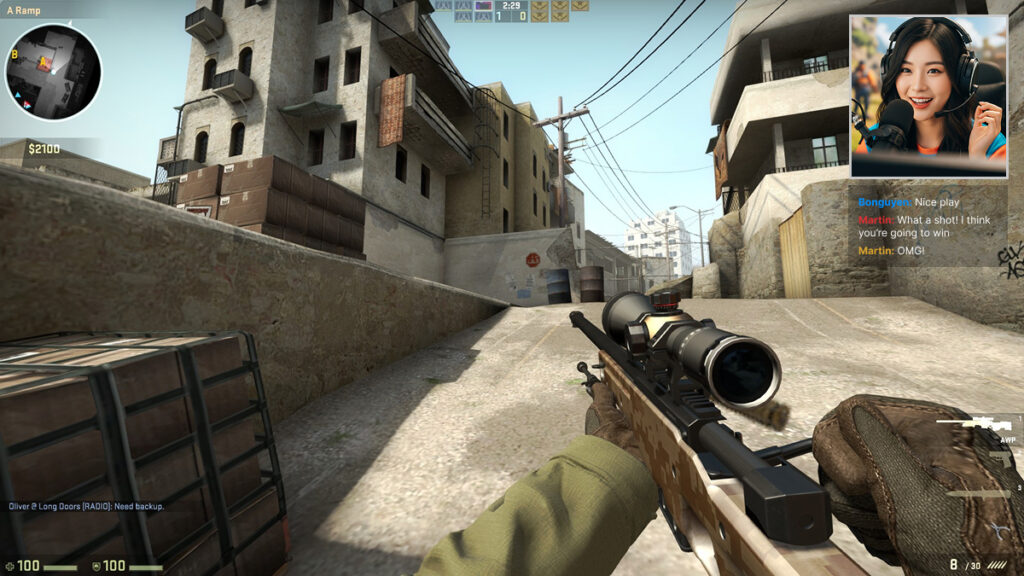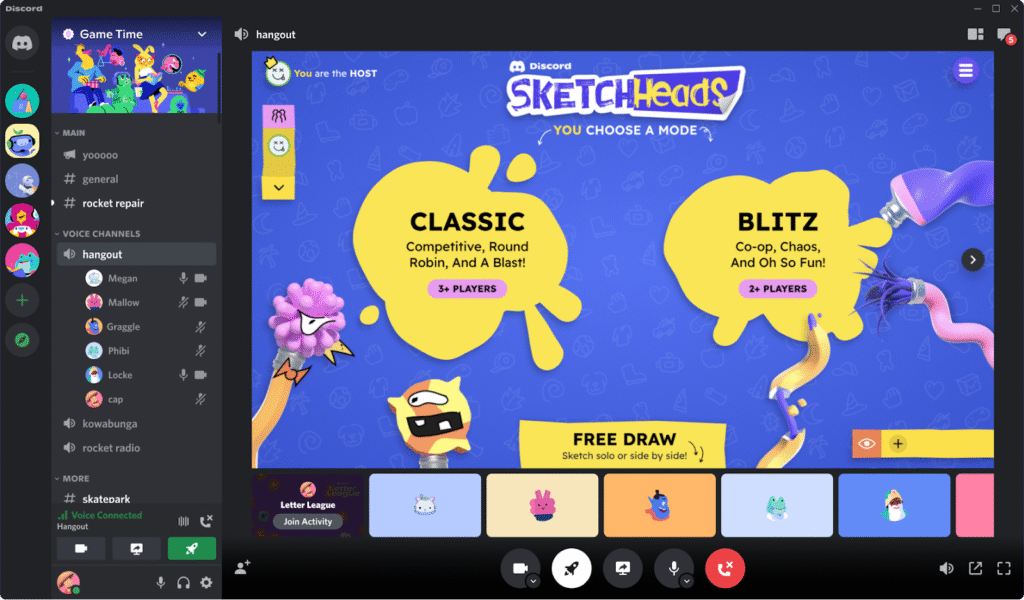Having trouble improving your English skills? What if the key to mastering the language wasn’t found in textbooks or traditional classes? This post will show you how video games are much more than just entertainment. They are powerful tools that can significantly boost your English communication abilities.
We’re going to explore how video games create an engaging and immersive environment for language practice. This unique setup allows you to naturally improve your listening comprehension, speaking fluency, and expand your vocabulary. Beyond that, regular interaction within these game worlds can sharpen your communication reflexes and build your confidence when speaking English. Get ready to see how playing your favorite games can also make you a better English speaker!

Single-Player Games
Single-player games often feature rich, deep stories and detailed worlds built specifically for those narratives. This creates an immersive experience where you truly feel like you are the character in the game.
1. Constant English Exposure: Sharpening Your Listening Skills
As you play single-player games, you’ll be constantly listening to English. Characters will talk to each other throughout the story, during gameplay missions, and even just as background chatter in the game world. This isn’t just passive listening; it’s an active process that directly helps you improve your listening skills in several key ways:
- Accents and Pronunciation: You’ll encounter a wide variety of English accents, from different regions and countries, and even distinct character voices. This consistent exposure helps your ears become more accustomed to the diverse sounds of English, making it easier to understand different speakers in real life. You’ll naturally pick up on correct pronunciation by hearing native and non-native speakers within the game.
- Intonation and Rhythm: Beyond individual words, you’ll hear the natural rise and fall of English speech (intonation) and its rhythm. This helps you understand not just what is being said, but also the speaker’s emotions, intentions, and emphasis, which are crucial for true comprehension. You’ll learn to distinguish between a question, a statement, or an exclamation just by the way it’s spoken.
- Speed and Flow: Conversations in games often mimic real-life speech, which can be fast and fluid. By constantly listening to characters talk at a natural pace, your brain gradually gets better at processing information quickly. You’ll become more comfortable with connected speech (when words blend together) and common contractions, which are often hard for non-native speakers to catch in typical classroom settings.
- Reinforcement through Repetition: Important dialogue or recurring phrases are often repeated throughout a game. This natural repetition helps solidify new sounds, words, and grammatical structures in your memory, strengthening your auditory recognition.

This constant, varied, and engaging auditory input makes single-player games an incredibly effective way to Improve Your English Communication without even feeling like you’re studying.
2. Learning English in Context
Games are excellent for contextual learning and natural language acquisition. They introduce new words and grammar in situations that make sense, making them easier to understand and remember. Because you hear and use these words repeatedly, you pick them up naturally, rather than just trying to memorize them.
For example, think about playing a game like Grand Theft Auto V (GTA V). You’re not just hearing random words; you’re hearing characters negotiate deals, argue with each other, respond to emergencies, or even just chat while driving. You might hear phrases like:
- “Get out of the car, now!” (Imperative commands)
- “You serious?” (Common informal question)
- “I’ll meet you there in ten.” (Time expression, informal)
- “What’s up, man?” (Greeting, slang)

You learn these phrases because they’re part of the action, part of what you need to understand to play the game. You’ll also encounter:
- Small talk (e.g., characters chatting casually in a bar or on the street)
- Making jokes and banter (learning humor and informal language)
- Negotiating and persuading (understanding how to influence others with words)
- Giving and following instructions (improving comprehension of directions)
- Expressing emotions (anger, surprise, fear, joy)
This means you’ll learn how people really use English for communication, just like in real life. You’ll pick up on natural speech patterns, improve your grammar without even realizing it, and expand your vocabulary in a very practical way. This kind of learning helps you not only understand English better but also use it more effectively in your own conversations.
With all these benefits in mind, here are a few game titles that Englinker recommends you try. In our opinion, these are some of the best games to embrace all the advantages mentioned above: GTA series, Detroit: Become Human, Before Your Eyes, In Sound Mind, and Prey (2017).
Multiplayer and Co-op Games
Online gaming platforms like Xbox Live, PlayStation Network, and Steam connect millions of players from all over the world. These platforms make it easy to talk to others using voice chat, text messages, and actions in the game. Many popular games, such as Fortnite, Overwatch, and League of Legends, have huge international communities. This means you often play with teammates or against opponents who speak different languages.

1. You HAVE to Speak! (And you’ll get better at it)
In many multiplayer games, especially team-based ones, you simply have to communicate with your teammates to work together and win. This creates a strong need to use English, putting you in a truly immersive environment where speaking is key. This constant need to talk directly improves your speaking and communication skills.
Let’s look at an example from a game like Counter-Strike: Global Offensive (CS:GO). Imagine you and your teammates have just finished a tough match, or you’re planning your next one. You might hear or say something like this:
- Player 1: “Ugh, that last match was brutal, guys. So close, though.”
- Player 2: “Yeah, definitely. Good effort, we almost clutched that one at the end.”
- Player 3: “For sure. Anyone up for another round, or should we switch to something else?”
- Player 1: “I’m down for one more if we try a different map. Playing ‘Dust II’ again might actually break me.”
- Player 2: “Haha, agreed. How about ‘Inferno’? Or we could jump into something totally different, like ‘Valorant’ for a bit?”
- Player 3: “Inferno sounds good to me. Gives us a fresh start. What do you think, Player 4?”
- Player 4: “Yeah, Inferno’s cool. Let’s do it.”
This kind of natural conversation teaches you how to express feelings, make suggestions, agree or disagree, and simply chat with others, which are all key parts of real-life English communication.

Another great example is a game like “Sea of Thieves“. This is a multiplayer pirate adventure game where teamwork and clear communication are super important, not just for fighting, but for managing your adventures.
Imagine your team has just finished digging up a big treasure chest. You might hear this kind of conversation:
- Player A: “Alright, we finally got it! That was a massive haul, wow!” (Expressing excitement and relief)
- Player B: “Seriously, my hands are shaking! Good teamwork everyone, especially with that skeleton wave we just fought.” (Sharing excitement and praising effort)
- Player C: “Definitely! So, what’s the plan now? Should we head straight for an outpost to sell this, or try and find more? I saw another ship nearby earlier.” (Asking about next steps and raising a potential risk)
- Player A: “Hmm, I think we should sell this first. No point risking all this gold. What do you guys think?” (Suggesting a cautious approach and asking for opinions)
- Player B: “Yeah, agree with Player A. Let’s secure this. We can always grab more later. Which outpost is closest and safest?” (Agreeing and asking for specific information)
- Player C: “There’s one to the north-west, pretty clear usually. Let’s set sail!” (Providing information and giving a command to start)
These situations make you naturally want to learn and use new English words quickly for planning, reacting, and simply interacting with your crew.
2. Make Friends (And speak more English!)
Playing online games allows you to meet many new people and make friends from all over the world. Since your friends might live in different countries, you’ll naturally have to use English to communicate and stay connected with them. This gives you many more chances to use and speak English often, outside of just gameplay, Improve Your English Communication.
You and your new friends will share stories about your lives, your cultures, and your gaming experiences. This gives you more reasons and motivation to improve your communication in English, as you build real connections with people.

3. Build More Confidence
Because you are constantly using and speaking English in games, often in a fun and less stressful way than a classroom, this practice builds your confidence. This new confidence in speaking English will then naturally transfer to real-life situations. You’ll feel more comfortable and ready to use your English skills when talking to people face-to-face, whether at school, work, or while traveling.
Challenges of Learning English Through Video Games
While video games offer many benefits for English learners, it’s also important to understand their downsides:
- Pressure in Multiplayer Games Can Be Stressful:
In online multiplayer games, you often need to communicate quickly and clearly, especially under pressure (like during a fight or a difficult mission). If your English isn’t strong enough, you might find it hard to express yourself. This can lead to misunderstandings, frustration for both you and your teammates, and in some cases, even negative comments from other players. Instead of learning, you might feel stressed, make mistakes often, and even feel discouraged, which means you won’t actually learn much. - English Learning Isn’t the Main Goal:
Remember, the main purpose of playing games is to have fun and win. Because of this, players often don’t pay enough attention to the language itself. There’s no teacher to explain new words or grammar rules, and no one to guide your learning. You might just focus on understanding enough to play the game, missing deeper language lessons, or simply not learning anything new if you don’t actively try. - Exposure to Informal or Bad Language:
Especially in online multiplayer games, you might hear a lot of slang, informal language, or even rude words and swearing. While some informal language is part of real English, relying too much on game language means you might not learn proper, polite, or formal English needed for school or work. You could pick up habits that are not suitable for all situations. - No Direct Correction or Feedback:
Unlike a real classroom or a tutor, games don’t correct your English mistakes. If you mispronounce a word or use wrong grammar, the game won’t tell you. This means you could keep making the same errors without even knowing it, making it harder to fix them later on. - Limited Range of Language:
While games are great for conversational and situational English, they might not cover all types of language. You probably won’t learn much academic English, business English, or very formal language from games. This means you’ll still need other ways to learn if you want to use English in a wider range of professional or academic settings.
How Englinker Helps You Overcome These Challenges
At Englinker, we understand the downsides of simply relying on games for English learning. That’s why our approach is different and designed to help you succeed:
- Structured Learning, Gaming Theme:
Unlike just playing games where learning is secondary, Englinker provides dedicated communication English lessons. Our main goal is your English improvement, with gaming used as a fun and engaging theme to keep you motivated. We make sure that English learning is the primary focus, so you get the guidance, explanations, and structure you need. This helps you build a strong foundation, so when you do jump into a game, you’re better prepared. - Reduce Pressure, Build Confidence:
By giving you structured lessons first, we help you gain the English skills you need before facing the pressure of in-game communication. You’ll learn essential phrases and communication strategies in a supportive environment. Then, when you apply what you’ve learned in our community, you’ll feel more confident and less likely to “mess up,” turning potential frustration into successful practice. - Learn the Right English:
Our lessons teach you appropriate communication English. While games might expose you to slang or informal language, Englinker helps you understand the difference between casual gaming chat and more widely useful English. You’ll learn to use language correctly and effectively, not just whatever you pick up randomly in-game. - Practice and Apply in a Gaming Community:
We provide a dedicated gaming environment through our Discord community. This is where you can immediately apply what you’ve learned in our lessons during real gameplay sessions with other learners and fluent speakers. This active practice means your time playing games becomes truly productive for your English. You’ll get to use your speaking and listening skills in a fun, authentic context that reinforces your lessons, getting feedback and support within the community.

Summary
To summarize, playing video games can significantly Improve Your English Communication Skills:
- Through Single-Player Games:
These games offer an immersive environment with rich stories. You’ll constantly listen to English from characters, which improves your ability to understand different accents, pronunciations, intonation, and natural speech speed. You also learn vocabulary and grammar in meaningful situations, making it easier to remember and use them naturally, just like real-life conversations. - Through Multiplayer and Co-op Games:
These games force you to speak English to cooperate with teammates and win. This gives you vital real-time speaking practice and Improve Your English Communication. You’ll also make friends from around the world, leading to more frequent English conversations and increased motivation to communicate. This constant practice in a fun setting directly builds your confidence to use English in real-life situations.



This is the post that I’m looking for. Thanks